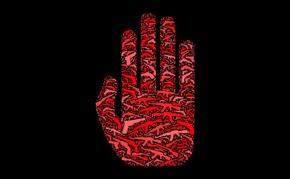The views expressed in our content reflect individual perspectives and do not represent the authoritative views of the Baha'i Faith.
The Baha’i writings teach that all humans are born noble:
O Son of Spirit! Noble have I created thee, yet thou hast abased thyself. Rise then unto that for which thou wast created. – Baha’u’llah, The Hidden Words, p. 52.
Regard man as a mine rich in gems of inestimable value. Education can, alone, cause it to reveal its treasures, and enable mankind to benefit therefrom. – Tablets of Baha’u’llah, p. 162.
We can all do one simple thing to recognize the inherent nobility in everyone: be conscious of the way we refer to our fellow human beings. The way we refer to people sheds light on the ways we perceive them, consciously and subconsciously. Language is one of the main vehicles of culture, so in order to rebuild our culture, we can take steps to analyze the way we use words to either acknowledge or disregard our fellow humans’ inherent nobility.
We often reflect our subconscious beliefs in our interactions with strangers. How do we treat the wait staff at restaurants, or the receptionist at the doctor’s office? How do we respond when approached by someone who asks for money? What is our reaction when cut off in traffic? Every day, we interact with people we don’t know, and when that happens, our true colors begin to show.
The Baha’i writings talk about the power of words, and how they have the potential to bring knowledge to humanity:
One word may be likened unto fire, another unto light, and the influence which both exert is manifest in the world. Therefore an enlightened man of wisdom should primarily speak with words as mild as milk, that the children of men may be nurtured and edified thereby and may attain the ultimate goal of human existence which is the station of true understanding and nobility. – Ibid., p. 173.
It is possible to so adjust one’s self to the practice of nobility that its atmosphere surrounds and colours all our acts. When these acts are habitually and conscientiously adjusted to noble standards with no thought of the words that might herald them then nobility becomes the accent of life. At such a degree of evolution one scarcely needs to try to be good any longer; all our deeds are the distinctive expression of nobility. – Abdu’l-Baha, Star of the West, Volume 4, p. 194.
On the news, we hear stories about people we don’t know, often told by people who we don’t know. Storytelling is a powerfully effective form of communication, and presents us with opportunities to reflect the principle that all humans are born noble—or ignore it. The next time you watch a newscast, take stock of the words used to describe the various kinds of newsmakers, whether they be community members, criminals, or political leaders. After a while, you may notice a bias emerging.
One way I try to reflect the nobility of others is by being conscious of the way I refer to them. Whether it’s someone we know or don’t know, the way you refer to someone can reveal the way you really see that person.
For example, I try never to define someone with a criminal record or a history of incarceration by reducing them to their crime. Rather than calling them a “felon” or a “criminal,” I’m more inclined to say “formerly incarcerated person” or “person who has spent time in jail.” Everyone makes mistakes in life, and we also know that a significant portion of incarcerated people are innocent—so why label others with a negative term—why not see them as a multifaceted person who, like every one of us, was born noble?
On a similar topic, many of us refer to others this way: “my architect friend Jane” or “my cousin Alex the plumber.” Some people don’t mind being referred to and primarily defined by their job, but to some it can unfairly narrow who they are and restrict how people relate to them.
After all, everyone has a soul, and that soul makes each person unique and special:
Know thou that every soul is fashioned after the nature of God, each being pure and holy at his birth. – Abdu’l-Baha, Selections from the Writings of Abdu’l-Baha, p. 189.
Try to remember that “each soul is fashioned after the nature of God …,” and you’ll see that small adjustments to language can go a long way toward humanizing people, especially those who are typically reduced to their job or one of their experiences.

















Comments
Sign in or create an account
Continue with Facebookor